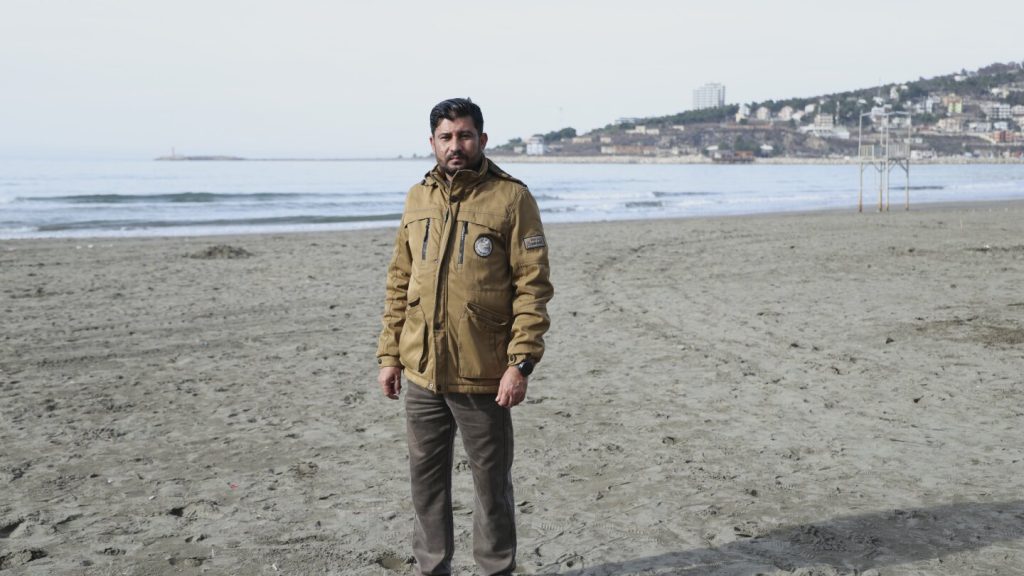The Plight of Afghan Allies: A Broken Promise and a Life in Limbo
The withdrawal of U.S. forces from Afghanistan in 2021 marked the end of America’s longest war, but for thousands of Afghans who worked alongside the U.S. military, it marked the beginning of a desperate struggle for survival. These individuals, who served as interpreters, drivers, legal advisers, and partners in the fight against the Taliban and Islamic State, were promised a new life in the United States through specialized visa programs. However, their hopes were shattered when President Donald Trump issued executive orders halting refugee resettlement programs, leaving them in a dangerous limbo. Now, many are forced to hide from Taliban reprisals, while others remain stranded in third countries like Albania, Pakistan, and Qatar, waiting for a resolution that may never come.
Roshangar’s Story: A Decade of Service and a Future in Jeopardy
Roshangar, an Afghan who worked as a legal adviser to the Afghan Air Force, is one of the many faces behind this crisis. For over a decade, he collaborated with U.S. officials to review and approve airstrike packages targeting Taliban and Islamic State fighters. His work was pivotal in supporting the U.S.-led mission, but it also made him a prime target for Taliban vengeance. After years of rigorous background checks and interviews, Roshangar was on the verge of starting a new life in America with his wife and son. However, Trump’s executive orders brought his journey to an abrupt halt. Now, the family lives in hiding, fearing execution or punishment for Roshangar’s partnership with American forces. “I was shocked,” he said in an interview. “I have already waited four years for this process, to get out of this hell and live in peace.”
The Fallout of Trump’s Executive Orders: A Betrayal of Allies
Roshangar’s experience is part of a larger tragedy. Trump’s decision to halt refugee resettlement programs was implemented without consulting experts or considering the dire consequences for Afghan allies. Shawn VanDiver, a Navy veteran and leader of #AfghanEvac, a coalition advocating for Afghan resettlement, called the move “an absolute stain on our national honor.” He emphasized that the U.S. had a moral obligation to protect those who risked their lives to support its mission. Many Afghans who worked with the U.S. are now stranded in perilous situations, either in Afghanistan or in temporary havens abroad, with no clear path forward.
A Complex and Halted Process: The Struggle for Resettlement
The process for Afghans to reach the U.S. is arduous and time-consuming, involving referrals from U.S. contacts, extensive background checks, medical screenings, and interviews with American officials. Even after completing these steps, many applicants were met with unexpected setbacks. Hashmatullah Alam, a 40-year-old Afghan who risked his life to assist U.S. forces, had a flight booked for himself, his wife, and six children when Trump’s order took effect. His family had already relocated to Albania for processing, only to have their hopes dashed. Alam, who remains hopeful that the pause will be lifted, described how his sacrifices during the war placed his family in grave danger. “We appeal to President Donald Trump to reverse his decision,” he said. “We were promised a new beginning in America, and we ask that he honor that promise.”
Khalid’s Plight: Teaching Hope in Exile, Waiting for a Future
In Pakistan, another Afghan ally named Khalid waits anxiously for news about his fate. A former partner of the U.S. Air Force, Khalid fled Afghanistan after his contributions to the war effort made him a Taliban target. He arrived in Islamabad in March 2023 and completed all the necessary steps for resettlement, including security clearances, medical tests, and interviews. However, as he waited for approval, he ran out of funds to support his wife and children. To make ends meet, he began teaching Afghan refugee children, many of whom are also waiting for their chance to start anew in America. Khalid’s students were devastated by the news of Trump’s executive order, and he described how they cried upon hearing it. “If I go back, the Taliban will kill me,” he said, his voice filled with desperation. “We were promised a bright future in America, and we hold onto that hope.”
The Ongoing Battle for Justice and a New Beginning
The stories of Roshangar, Alam, Khalid, and thousands of other Afghan allies highlight the urgent need for the U.S. government to act. Veterans, lawmakers, and advocacy groups continue to call for the Biden administration to prioritize the resettlement of high-risk Afghans, many of whom are now in grave danger. Lt. Col. Steve Loertscher, a U.S. military officer who referred Roshangar to the refugee program, believes that individual cases like his should be considered on a case-by-case basis, as allowed by Trump’s executive order. “Eventually, I’m hopeful that he’ll be able to become a refugee and come to the United States,” Loertscher said. However, the broader issue remains unresolved, leaving












